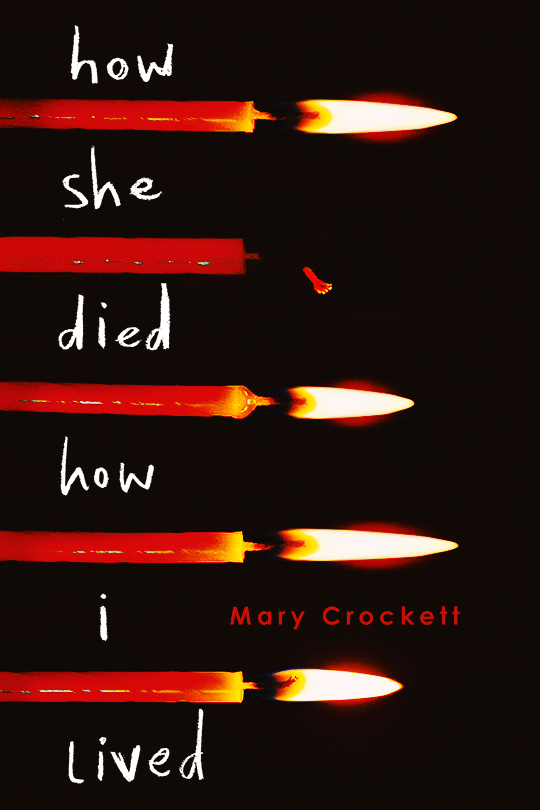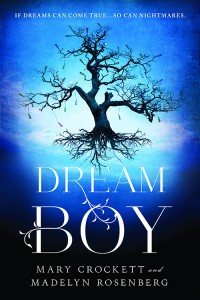 Mary Crockett is my sometimes writing partner and my always friend. I could not be happier to talk with her about her new YA novel How She Died, How I Lived, which is coming out in November from Little, Brown. It’s about a girl overcoming survivor’s guilt when her friend Jamie is killed by another boy.
Mary Crockett is my sometimes writing partner and my always friend. I could not be happier to talk with her about her new YA novel How She Died, How I Lived, which is coming out in November from Little, Brown. It’s about a girl overcoming survivor’s guilt when her friend Jamie is killed by another boy.I was one of five. The five girls Kyle texted that day. The girls it could have been. Only Jamie–beautiful, saintly Jamie–was kind enough to respond. And it got her killed.
I’ve written both about Mary and with Mary (you can visit some of our old blog tour stops here) so I’m keeping the introduction brief and just jumping in:
Me: What inspired you to write this book, in particular?
Mary: How She Died, How I Lived was a bit different for me as a writer, because it wasn’t necessarily a book I decided to write. The story overtook me and made me write it, if you know what I mean.
I was hard at work on an entirely different manuscript when I saw in the newspaper that a young woman from my community who had been missing for days was found dead by the side of the road. She was murdered in a shockingly brutal way by a young man she knew and trusted. A young man, in fact, that she was trying to help.

I was simultaneously outraged and overwhelmingly sad.
That story broke something in me. So I did what I do when I’m broken. I cried. And then picked up a notebook and pen.
Me: That sounds … hard. How did you keep moving forward?
Mary: It was a hard story to write–but I really felt this story mattered, and that faith kept me moving.
You know me, Madelyn. I love to laugh at silly jokes and goof around. I’m not the Doom and Gloom Patrol. So my challenge with this story was finding the light, even in the darkest of moments. And I did find it.
This is a story about healing and friendship and discovering out what’s worth living for, even in the wake of something horrific.
Me: Let’s talk a little about the writing process. Something I always struggle with as a writer is self-discipline. What do you tell yourself to keep yourself focused during the chaos of every day?
Mary: Oh wow. I fail. A lot.
I was trying to sit down yesterday to get going again on my work-in-progress after a looooooooong hiatus, and I swear, I just WOULD NOT DO IT.
I wanted to return to that manuscript that was half-written when I started How She Died, How I Lived, but I was going out of my way to find absolutely anything else to do instead. Heck, I resorted to doing laundry! By choice–not just because we ran out of underwear!
I felt so nervous, like someone had set me up on a blind date. Would the manuscript like me? Would I like it? What should I wear?
So yeah, I’m not the person to ask about self discipline!
Me: (This makes two of us. Obviously, I do blog interviews when I should be working on other projects…)
How does raising teens while writing about teens — especially when the story turns dark — inform your writing?
Mary: When my daughter was younger, I tried to ignore the fact that she might one day read my stuff. You know, so I wouldn’t feel guilty about the cursing or kissing or bad behavior or whatever. But now she’s an older teen, which makes her the ideal target audience for How She Died, How I Lived. And she was my best reader, honestly.
I ask her, do you think I should change the language here or tone that part down? And she argues to keep it dark and edgy–because to her, that’s real. That’s what she hears and sees every day at her high school.
My teen sons are another story. I’m not sure they’re even aware what I do for a living. (That’s not entirely a joke.)
Me: Because I love hearing about lightness, too, so why don’t you talk about what it felt like to get a Y-E-S for this book?
Mary: It seems the universe keeps trying to teach me the lesson that I have to let go of my desire in order for the thing I want to happen.
This manuscript had been in circulation for quite a while, and quite frankly, I had lost hope. So I shrugged and went on about my business otherwise.
Luckily, my fantastic agent Emily Mitchell did not lose hope! She kept plugging away–so when I got the news that an offer was coming in (and not only an offer, but an offer from a press that has published some of my literary heroes!), I was out of my skin!
One of the best parts was sharing the news with my friends–all of whom had heard me moan and groan about how I was giving up.
I knew when I called to tell you my good news, Madelyn, you were genuinely as happy for me as I was for myself! And having a friend like that, who truly wants the best for me–that’s not something I take for granted. (Or at least I try not to!)
Me: We were over-the-top happy for you — we knew how hard you had worked!
I know you do all different types of writing, from poetry to news releases to grant proposals to YA. What was the first thing you ever published? Grade school counts.
Mary: When I was in 3rd grade, my teacher had the class write stories about having a wish granted. I think in my story an alien comes down from outer space and tells me I can have whatever I want, and I say “a friend!” and then the alien becomes my friend. The teacher went on about what a great story it was, and she had copies made that she passed out for all my classmates.
So at the time, I thought this was all due to my amazing story. But looking back as an adult, I realize my teacher must have been aware I was a friendless oddball who was regularly mocked (no pity–this is just the truth!), and I think she was trying to send a message to the class to be nicer to me. It didn’t work, but I was happy that she liked my story.
Now, I realize that pretty much the arc of anything I write–picture books, novels, whatever–is still just that story in a different form:
Someone needs a friend; someone gets a friend. The End.
Me: Besides the friend thing, are there themes that you go back to when you’re writing in different forms? Something that repeats in your poetry and your books and even in your picture book manuscripts?
Mary: Hmmm. Yes, the friend thing–but also oddities. The weird. The out-of-sync. The awkward.
Also, birds. The river.
More motifs than themes, I guess.
Me: What has writing in one form taught you about writing in another?
Mary: Poetry teaches you to listen to the quiet between words.
Prose teaches you to hurry up and say it already!
Me: Is there any form you’d like to tackle that you haven’t yet?
Mary: Verse novel, baby! It’s a gonna happen! I haven’t started yet, but hope springs eternal!
Me: And finally: What’s your writing super power? (This is a new question I’m asking in the hopes of assuring kids who say ‘I’m bad at writing’ that there is probably some aspect of it that they ace. Maybe they’re good at gross descriptions. Or kissing scenes — I always thought you, personally, were great at kissing scenes. Anyway, what do you think of as your super power?)
That’s a cool idea! Yeah! I suck at the big picture, but I’m pretty good at one word after another. One and then one and then one. And the big picture comes into focus soon enough.
Thanks, Mary!
You can preorder How She Died, How I Lived from any independent bookstore or online. I hope you will, because pre-order sales help! Also, Mary is currently running a pre-order promotion. You’ll get exclusive digital content. Plus, you could win $50 at the bookstore of your choice. (Link to http://marycrockett.wixsite.com/author/pre-order-contest)
You can follow Mary on Twitter at @marylovesbooks and Instagram at @marycrockettwriter. And if you want to check out Dream Boy, Mary’s previous YA novel (the one she wrote with, ahem, me) I hope you’ll do that, too!


Thanks, Dionna!!!
This is a beautiful, heartfelt and insightful interview! I’m glad you took a break from your own amazing writing, Madelyn, to share Mary’s story with us!